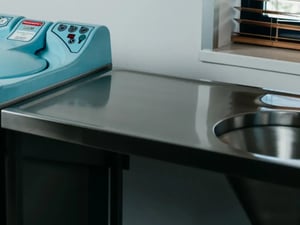About Us
Planning A Modern Sluice Room: Prevent Infections, Cut Costs
Small improvements in sluice room design can cut costs and significantly improve ...
Bedpan Washer vs Macerator: Which is best for you?
Bedpan Washer-Disinfectors vs Pulp Macerators: How to Choose for Your Care Home? Choosing ...
Sluice Machine Breakdowns: The Real Cost (and How to Avoid It)
Impact of Sluice Machine Breakdowns There is never a good time for any machine to fail. ...
What Is Thermal Disinfection And Why Is It Relevant To Bedpan Washers?
Bedpan washer disinfectors underpin the infection control strategy of numerous care homes ...
How DDC Dolphin Can Help Care Homes Cut Costs Amid National Insurance Rises
For care homes in the UK, cashflow is tighter than ever, with tough conditions forcing ...
DDC Dolphin Sluice Room Equipment Shrinks Downtime
In medical environments, dependable equipment is essential for safeguarding patients, as ...
Healing Your Budget: DDC's Cure for Costly Procurement Practices
In today’s healthcare landscape, cost-efficiency is more crucial than ever.
Meeting Infection Control Challenges in Diverse Hospital Departments
From maternity wards to geriatric units and infectious disease units, maintaining ...
Boosting Infection Prevention with Standardised Hospital Cleaning Protocols
For hospitals, ensuring good hygiene and robust infection control standards is a ...
How DDC Dolphin Can Help to Achieve Your Hospital's Green Plan Goals
The NHS underpins the health of our nation – but without a clear path to reduce CO2 ...
Navigating Rising Temperatures with Enhanced Infection Prevention Measures
In recent years, climate change has increasingly left its mark on the global stage, with ...
The Enhanced Panamatic Maxi and Optima 3
Healthcare-associated infections – such as E. coli and C. difficile - can develop as a ...








